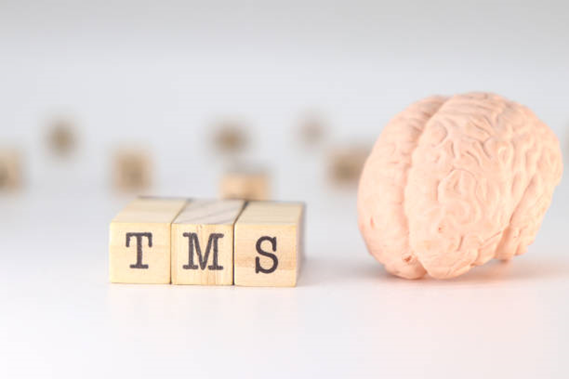In recent years, Transcranial Magnetic Stimulation (TMS) therapy has emerged as a groundbreaking option for individuals struggling with treatment-resistant depression. This non-invasive procedure offers hope to those who haven’t found relief through traditional antidepressants or therapy. As mental health awareness grows and treatment options diversify, TMS stands out for its science-backed approach and minimal side effects.
What Is TMS Therapy?
Transcranial Magnetic Stimulation, also known as TMS, is a medical therapy involving the stimulation of certain parts of the brain by using magnetic fields. Such regions are normally hypoactive in people with major depressive disorder (MDD). TMS is expected to restore a balanced brain activity and ameliorate depression symptoms by applying magnetic pulses to stimulate the mood-regulating areas of the brain, most often the left prefrontal cortex.
TMS got the green light by the U.S. Food and Drug Administration (FDA) in 2008 as treatment-resistant depression and has been granted other indications in certain instances, such as obsessive-compulsive disorder (OCD) and smoking cessation. Visit this site for more information.
How Does TMS Work?
It is done by placing a coil on the head just above the forehead. This coil produces repetitive magnetic pulses, which penetrate through the skull and excite neurons in specific regions of the brain. It is painless, and some patients can experience a tapping feeling on their head that occurs during the process.
TMS can be administered as a course of treatments- usually five days a week, during four to six weeks. The duration of one session varies between 20 and 40 minutes, according to the particular protocol applied.
TMS does not need anesthesia like Electroconvulsive Therapy (ECT), it does not induce seizures, and a patient can go back to daily activities right after the procedure.
Who Is a Good Candidate for TMS?
TMS therapy is mostly applied on adults which have not shown positive results to using antidepressants or other normal treatments of depression. An individual can be regarded as a good candidate in case they:
- Were found to have major depressive disorder
- Have taken several antidepressants without sufficient improvement
- Choose non-drug option because of side-effects or by choice
- Not having psychosis, bipolar disorder or seizure disorders
Patients that are forwarded to receive TMS usually have a psychiatric assessment first to establish their suitability as a patient.
The Benefits of TMS Therapy
There are multiple benefits of TMS therapy that make it a somewhat attractive solution to some people:
1. Drug-Free and Non-Invasive
Among the greatest advantages is the fact that TMS is not connected with medications or invasive interventions. This is a great advantage to those patients who are not able to withstand the antidepressants because of their side effects.
2. Very few side effects exist.
TMS has somewhat few side effects unlike medications which may result in weight gain, fatigue or sexual dysfunction. Mild headaches, scalp pain or lightheadedness are the most reported during treatment.
3. Better Mood and Functioning
Lots of patients complain of great changes in their mood, power, and capability to lead a normal life. Others still go into complete remission of symptoms.
4. CE Marked, FDA Cleared and Clinically Validated.
TMS is supported with strong clinical research and major psychiatric institutions accept it as a possible solution to treatment-resistant depression.
Limitations and Considerations
Although the TMS therapy holds immense promise, it is worth knowing that the therapy is not bound to suit everyone. Not all of them respond at the same rate and some patients will require maintenance treatments or booster sessions in the long run.
Additionally, TMS should not be used on patients with metallic objects in the head or surrounding areas such as aneurysm clips or cochlear implants because it is a magnetic procedure.
Also, although most insurance companies are currently covering TMS in treating depression, it may require certain medical criteria to be covered. Before initiating therapy, one should check the eligibility. Read this for reference.
The Science Behind TMS
The mechanism of TMS involves the stimulation of nerve cells of the dorsolateral prefrontal cortex- an area linked with mood regulation. Depressed people tend to be less active here. TMS can reset these neural paths by delivering repeated magnetic pulses, which encourages these brain circuits to be healthier in the long run.
Functional MRI scans have shown increased activity in targeted regions of the brain following a series of TMS sessions, suggesting that the treatment leads to long-term changes in brain function.
What to Expect During TMS Treatment
Here’s what the process typically looks like:
Initial Consultation: The psychiatrist assesses medical history, past treatments, and mental health status to determine eligibility.
Mapping Session: A session is used to locate the precise area of the brain to target and calibrate the correct magnetic intensity.
Treatment Sessions: Most patients undergo daily sessions (Monday through Friday) for several weeks. You remain awake and alert during each session.
Monitoring Progress: Clinicians Carlsbad TMS Therapy track symptom improvement and side effects throughout the course of therapy.
The Future of TMS
With ongoing research, the applications of TMS continue to expand. New forms such as theta burst stimulation (a faster form of TMS) are being explored for efficiency and better outcomes. Researchers are also investigating TMS for other psychiatric and neurological conditions such as anxiety disorders, PTSD, chronic pain, and addiction.
As technology advances and stigma around mental health decreases, more people are turning to innovative treatments like TMS to find the relief they need.
Conclusion
Transcranial Magnetic Stimulation is a modern, science-driven approach to treating depression—particularly when other methods have failed. Its non-invasive nature, low side effect profile, and growing track record of success make it a valuable addition to the mental health toolbox.
While not a cure-all, TMS provides hope and healing for many individuals suffering from depression. If you’re struggling with symptoms that haven’t improved with traditional treatment, it may be time to consider talking to a healthcare professional about TMS therapy.





